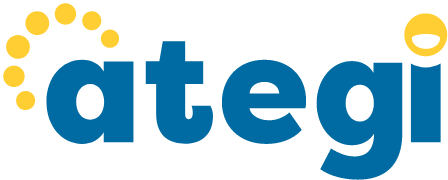Safeguarding Week: Safeguarding adults through reflection, learning, and growth
Safeguarding Adults Week is an opportunity for organisations and individuals to reflect on safeguarding practices, examining successes, challenges, and the work that still lies ahead.
Safeguarding is all about making sure everyone is safe, respected, and supported, and it’s especially important when working with adults who have additional needs. These individuals can face extra challenges that make them more vulnerable to things like neglect, abuse, or exploitation. Safeguarding is about creating environments where they feel safe and valued, while also protecting their rights and promoting their independence. It’s not just about following rules—it’s about doing the right thing to make sure they’re treated with care and respect and can live their lives with confidence and dignity.
At Ategi, safeguarding is core to our mission. Every day, we aim to protect and empower adults with additional needs through encouraging safe, supportive relationships via our services, Shared Lives, Supported Living and Community Support.
Our safeguarding practices have evolved significantly. Key successes include:
Increased awareness: Regular training has become standard, equipping our staff, carers and volunteers with the skills to spot and act on safeguarding concerns.
Clear reporting mechanisms: We now provide easier, more confidential ways to report concerns, ensuring that issues are addressed quickly and effectively.
Person-centred focus: Safeguarding increasingly centres on listening to and respecting the wishes of vulnerable adults, enabling more compassionate care.
We continuously strengthen our safeguarding practices through training and an emphasis on open communication, striving to empower our staff, carers, and the people we support.
Challenges persist, however complex, multi-faceted safeguarding cases require collaboration across sectors to ensure no one falls through the cracks. Additionally, despite progress, barriers to reporting still exist, and with digital risks on the rise, safeguarding must evolve to address these online threats.
To build safer communities, organisations must commit to ongoing learning.
This includes:
Reflective practice: Regular reviews of cases to identify areas of improvement and learning.
Ongoing training: Continual professional development, including new topics like digital safeguarding.
Community engagement: Building trust within diverse communities to help overcome cultural and language barriers to reporting.
At Ategi, we are dedicated to fostering a culture of openness, reflection, and growth. By doing so, we move closer to our vision of ensuring the people we support feel safe, respected, and supported to live their best lives, their way.
As we look to the future, safeguarding must continue to evolve to meet the needs of an ever-changing world. This means embracing new technologies to identify risks, providing ongoing training to those in safeguarding roles, and ensuring that policies remain inclusive and proactive. The goal should always be to create a society where everyone feels safe, valued, and empowered. However, failing to prioritise safeguarding puts lives at risk, leading to harm, broken trust, and communities that fail their most vulnerable members. By staying committed to safeguarding, we can build a future where every individual, regardless of their needs, is treated with dignity, compassion, and respect.










About the author
Karen Thomas
Karen joined Ategi as a Finance Assistant, having worked in the banking industry for 23 years. She completed her AAT qualification and was looking for something completely different and she found it at Ategi. Karen loved the values of the organisation from the start and has been on an interesting journey where she has been supported to develop within the organisation.